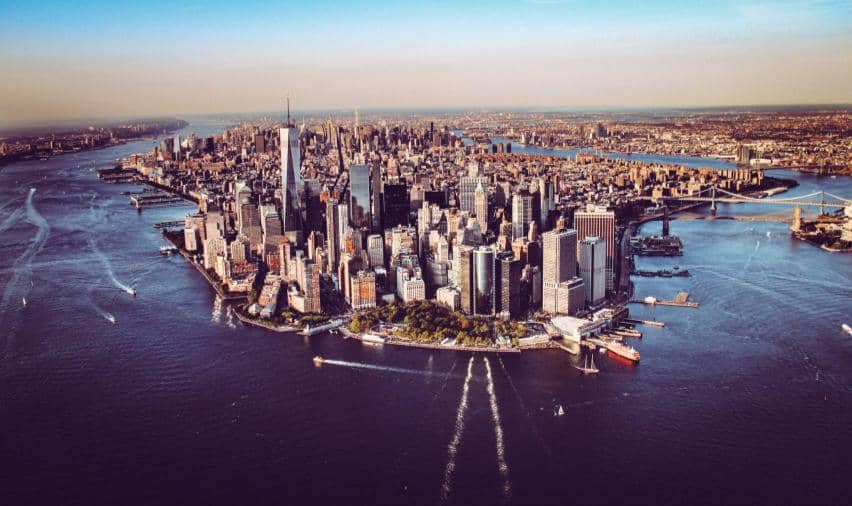Interview with Giancarlo Fonseca, Country Head Italy at Lombard Odier IM, about sustainable finance

5 DEC, 2023
By Johanna Zidani from RankiaPro Europe

In the current global financial landscape, sustainability has become a central theme. To better understand this domain and its impact on investment fund management, we interviewed Giancarlo Fonseca, Country Head Italy at Lombard Odier Investment Managers, a key figure in the financial sector specializing in sustainable strategies.
During our conversation, we explored the trends, challenges, and opportunities surrounding sustainable finance and how they are transforming the investment landscape in Italy and globally.
How is Lombard Odier Investment Managers addressing the transition to the circular economy and electrification?
Our model is built on three pillars: electrification, focusing on the energy sector; the protection of land and oceans, linked to food production; and the circular economy, addressing how we extract materials from the earth to produce the resources needed for our productive ecosystem.
This is a transformation that involves new rules, new objectives, and a complete rethink of the logic by which we sustain this ecosystem. For us, this is an industrial revolution: companies need to decarbonize, transform their business models, and continue to generate profits for shareholders.
However, not all sectors and companies will be able to positively navigate this transition. Therefore, for us at LOIM, this also becomes a risk management issue. Access to a wealth of data is necessary to analyze this industrial revolution: while traditional financial research works to understand a company's financial behavior, the risks associated with the transition require additional analysis.
Could you tell us about some of LOIM's significant scientific partnerships with sustainability and eco-transition experts and how they work together?
Among our goals are the creation of scientific networks and strong connections with businesses. On one hand, we have a collaboration with Systemiq, a UK-based global advisor and B Corp, primarily providing consultancy for governments and international organizations on major industrial sector change systems and business analysis. They have been our partners for several years and have supported us in building our sustainability framework. We then established holistiQ with the aim of creating a research team on all topics related to the transition from a systems change perspective and sectoral roadmaps. This team aims to offer a range of diverse and innovative investment strategies for public and private markets, with a focus on nature-based solutions.
Additionally, we have an ongoing partnership with Oxford University to enhance our research capabilities on broader scientific topics related to sustainability. This collaboration allows us to analyze in detail everything happening in nature, including climate, temperatures, biodiversity, ocean acidification, waste generation, chemical pollution, etc. It's a complex issue, and that's why we use the scientific foundation of Planetary Boundaries.
The combination of these partnerships helps us become more aware of the actions we take from an investment perspective. We are also partners with other organizations; for example, in the UK, we are founding members of Prince Charles's Biocircular Economy, and in Italy, we are founding members of the Regenerative Society Foundation, created by Italian companies that are exemplary in sustainability. We also have our scientific committee within this foundation.
What key indicators do you use to assess the performance of sustainable investments?
Several years ago, we started building our ESG platform to create our own scoring system. This platform has evolved over the years to make it as precise as possible.
We have developed forward-looking metrics with predictive capabilities regarding what a company can contribute to decarbonization goals. This is because traditional ESG metrics are typically backward-looking, capturing data up to the present but providing little insight into the future direction a company is taking.
The main metrics from this perspective include our proprietary Implied Temperature Rise indicator. This metric helps us determine whether the actions a company is taking in its business plan will have an impact above or below the 1.5/2-degree target, as required by the 2015 Paris Agreement. We monitor it over time to understand the trajectory and its impact on the climate.
Another proprietary metric is the Climate Value Impact, which measures the climate risk associated with a company. The planet's climate has changed, leading to extreme weather events that threaten societies near the areas where these events occur. It also impacts businesses, their production and distribution supply chains. This represents a financial cost, so we measure it to understand if we are investing in a company particularly exposed to climate-related risks.
Additionally, we analyze the business plans of companies to understand how they allocate their Capex and Opex to business development projects and how these impact value generation and sustainability metrics.
How does LOIM balance financial objectives with social and environmental impacts within its investment portfolios?
We include companies in our portfolios that generate value both financially and in terms of impact. What does this entail? If there's a company that has a positive impact but doesn't generate financial value, we continue to monitor it until it starts generating financial returns as well. We do not invest in companies that, despite generating value, have a significantly negative impact on the planet. For us, the perfect mix is to generate value both financially and in terms of impact.
What are the main financial innovations that could have a significant impact on promoting sustainability?
We, as an industry, are ready to innovate financially. However, in my opinion, the major innovation needs to come from regulators, who must help the system move in a consolidated manner, all together. Even today, there is a plurality of methodologies that create confusion.
How is the regulatory landscape evolving in relation to sustainable investments, and how is LOIM adapting to these new regulations?
Exactly, we are adapting: the work we must do responsibly and in compliance with regulations is to incorporate them into our framework.
We have a great focus on reputation issues, and, particularly on sustainable transition themes, there is special attention to avoid any greenwashing actions. We collaborate with regulators so that the rules genuinely and concretely help develop sustainable finance.
What initiatives does LOIM promote to ensure transparency and communication to investors regarding the social and environmental impacts of their investments?
We invest a lot of resources in communication and producing the clearest and most transparent legal materials possible (of course, it's an ongoing learning process, so there is always room for improvement), and we strive to make our choices as understandable as possible.
Which sustainability-related sectors are most interesting for investors?
All industrial sectors are involved in the eco-sustainable transition. Currently, valuations are extremely interesting for an investor focused on value and with a medium to long-term time horizon.
While some mega-cap companies have reached very high valuations this year, the rest of the market is discounted, especially mid-cap and small-cap companies where a significant portion of innovation in processes and business models related to the transition can be found. Consequently, an investor entering this market today not only encounters an irreversible theme for future development but also exceptional prices.
What are the main obstacles that could slow down progress towards sustainable finance?
The real obstacle is education. We will never stop emphasizing this: it's about investing for the medium to long term, at least 5 to 10 years.
This week, COP28 is taking place. What are your perspectives? What can investors expect?
The key focus of COP28 will be the phase-out of fossil fuels, how to manage it, and how to finance it. Another theme is that Western countries must be able to support the transition in developing countries with funding.
Formulating expectations is challenging because negotiations on these two themes are very complex. However, the fact that they are being discussed already indicates how the transition theme is no longer up for debate. What needs to be discussed is the operational detail.
In the current global financial landscape, sustainability has become a central theme. To better understand this domain and its impact on investment fund management, we interviewed Giancarlo Fonseca, Country Head Italy at Lombard Odier Investment Managers, a key figure in the financial sector specializing in sustainable strategies.
During our conversation, we explored the trends, challenges, and opportunities surrounding sustainable finance and how they are transforming the investment landscape in Italy and globally.
Related interviews
 Ben Tingling (MFS IM) on the Contrarian Value fund: “It adapts well to an increasingly uncertain macroeconomic environment”
Ben Tingling (MFS IM) on the Contrarian Value fund: “It adapts well to an increasingly uncertain macroeconomic environment”By RankiaPro Europe

